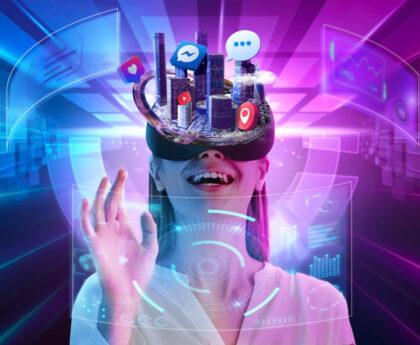Introduction:
Artificial Intelligence (AI) has emerged as a transformative force, revolutionizing various industries and reshaping our daily lives. As we stand on the cusp of a new technological era, it is crucial to delve into the future of AI, examining its potential and the implications it holds for society. In this comprehensive exploration, we will embark on a journey into the depths of AI, unraveling its capabilities, discussing its impact on industries, and reflecting on the ethical considerations that come with its advancement.
I. Understanding Artificial Intelligence:
- What is Artificial Intelligence?
- Defining AI and its core components
- Differentiating between narrow and general AI
- AI Development and Current State:
- Evolution of AI technology and key milestones
- Current applications of AI in various sectors
- Types of Artificial Intelligence:
- Supervised, unsupervised, and reinforcement learning
- Deep learning and neural networks
II. The Potential of Artificial Intelligence:
- Advancements in Automation and Robotics:
- AI’s impact on manufacturing, logistics, and transportation
- Robotics and the future of automated workforce
- Healthcare and Medicine:
- AI-driven diagnostics and precision medicine
- Improving patient care and drug discovery processes
- AI in Finance and Banking:
- Algorithmic trading and risk assessment
- Enhancing customer experience and fraud detection
- AI for Sustainability and Climate Change:
- Harnessing AI for environmental monitoring and resource management
- Predictive modeling and mitigation strategies
III. Ethical Considerations and Implications:
- Bias and Fairness in AI:
- Addressing algorithmic bias and discrimination
- Ensuring fairness and accountability in AI systems
- Privacy and Security Challenges:
- Safeguarding personal data and preventing data breaches
- Balancing privacy concerns with AI advancements
- Job Displacement and Workforce Transformation:
- Analyzing the impact of AI on employment and job roles
- Reskilling and adapting to the changing job market
- Ethical AI Development and Regulation:
- Establishing guidelines and frameworks for responsible AI
- Ensuring transparency, accountability, and human oversight
IV. The Future Landscape of AI:
- Advancements in AI Research and Development:
- Quantum computing and the potential for quantum AI
- Breakthroughs in natural language processing and computer vision
- Human-Machine Collaboration:
- Augmented intelligence and AI-powered decision support systems
- Exploring the synergy between humans and AI
- AI and Social Impact:
- AI in education and personalized learning
- AI’s role in addressing social issues and improving accessibility
- The Future of AI in Popular Culture:
- AI in entertainment, gaming, and virtual reality
- Exploring the creative potential of AI-generated content
Conclusion:
As we peer into the future of Artificial Intelligence, we are met with a landscape teeming with possibilities and challenges. AI has the potential to reshape industries, revolutionize healthcare, and drive sustainable development. However, ethical considerations such as bias, privacy, and job displacement must be carefully navigated. By fostering a responsible and inclusive approach to AI development, we can harness its power for the greater good and ensure a future where humans and machines coexist harmoniously. As AI continues to evolve and permeate our lives, let us embrace its potential while being mindful of the ethical implications it presents.





